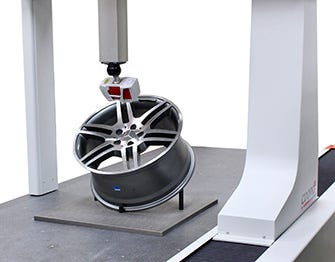How the IoT Is Transforming Machining
Advanced data-tracking capabilities are a must for manufacturers managing the changes brought about by the Internet of Things.
June 17, 2016

By Megan Ray Nichols
Most manufacturers are still adjusting to the Industrial Internet of Things, and the explosive effects it seems certain to have for their operations and their supply chains, but it’s apparent that even more changes may be expected: IIoT is a singular example of how new technologies and innovations are combining with traditional manufacturing methods, and how manufacturers must adapt to the such changes in order to remain competitive. This may be a “positive disruption” to manufacturers’ activities, but the full effects are difficult to anticipate.
Understanding the full scope of the IIoT, or even some of its functional subdivisions, can be difficult. Adding to the complexity are the various labels or synonyms applied to the IIoT, like the simpler “Internet of Thing,” Industrial Internet, Industry 4.0, and more.
CMM and the IIoT. Happily, many manufacturing operations have the advanced technology necessary to deal with the data requirements of IIoT. By using coordinate measuring machinery (CMM), machine shops or other manufacturers can capture the precise details of the geometry or surface conditions of a workpiece. Working within IIoT, those manufacturers then can share such data between machines, exchange information between facilities, or with customers or suppliers. Also, they can expand their data resources, reduce manufacturing waste and errors, and more.
One company active in this area is Perceptron GmbH, a developer of automated industrial metrology products and technologies, which was selected by VW/Audi Group recently to provide inline measurement equipment for seven assembly plants in China, Spain, Hungary, Slovakia and Belgium.
In addition, operations may work within the IIoT to complement their metrology resources, allowing them to process more types of components, thereby optimizing resources and adhering to individual production timelines. Measurements then can be shared and stored via the Cloud, resources can be allocated to specific projects as needed, and managers can achieve greater control over simultaneous production lines.
The combination of CMMs and the IIoT can promote new opportunities for manufacturers for manufacturers regarding supply chain tracking and optimization, real-time production and performance feedback, and even scalable, production-responsive operations. Not only can this help optimize and improve the services they offer, but it can also boost customer support, enhance service-level agreements and cultivate new revenue streams for your business.

Using CMM, machine shops or other manufacturers can
capture the precise details of the geometry or surface
conditions of a workpiece.
Direct Benefits in Manufacturing and Machining
There are some estimates that the IIoT could drive growth of more than $50 billion between 2013 and 2018.
For individual manufacturers, this means increased opportunities for workforce automation and efficiency, streamlined communications between humans and computers, and greater accuracy in production. Moreover, the IIoT is seen ushering in the arrival of next-gen smart factories, which will facilitate even more speed, reliability and capacity your production lines.
Some companies are prepared for this now. Hexagon Manufacturing Intelligence North America, recently created a dedicated Solutions Team to monitor and develop new trends according to ideas gleaned from the IIoT, and Industry 4.0 in general.
“As manufacturers advance toward Industry 4.0, they don't have to go it alone,” Hexagon’s Jeff Perry, explained recently. He described how the Solutions Team would work to replicate the ways other recent advancements and innovations have led to greater automation, improved technical support and increased accessibility.
Other businesses have been taking advantage of the IIoT for several years already, and these companies are now enjoying the benefits of Cloud-based manufacturing technology, Big Data analysis, smart machine awareness, and enhanced connectivity.
The IIoT and Beyond. Whether you refer to it as the Internet of Things, Industry 4.0, the Industrial Internet or any of its other monikers, you can’t overlook the impact that IoT is having on manufacturing. We've already seen improvements in worker morale, advancements in communications and automation, increasing evidence of production efficiency. There’s simply no over-estimating what the Internet of Things may mean for the future of manufacturing.
This article was originally published by our sister publication American Machinist.
You May Also Like






